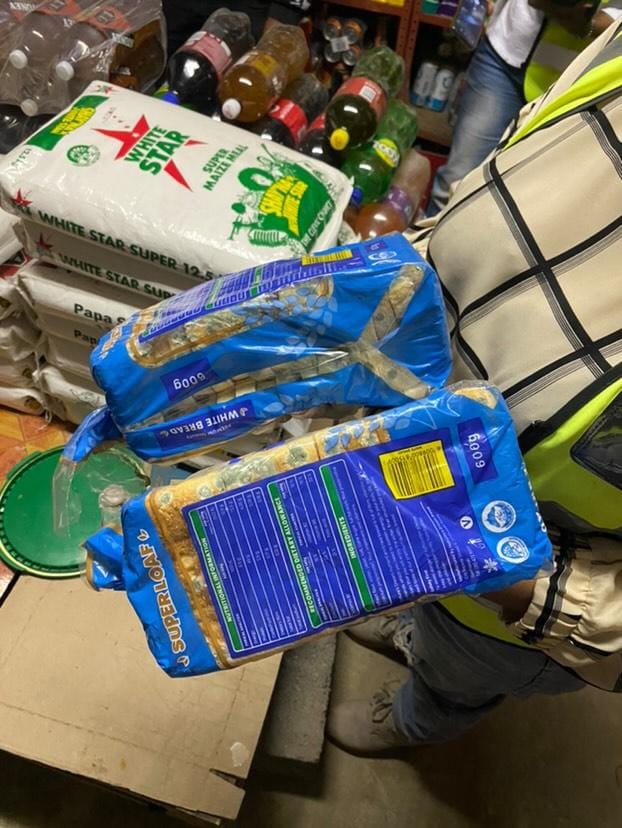Environmental health practitioners in municipalities are responsible for ensuring compliance with food safety laws in South Africa.
Hardly a day goes by now without news about a group of children falling ill after eating snacks bought from a spaza shop.
In some places, communities closed down foreign-owned spaza shops, but the main problem seems to be that our metros do not have enough environmental health inspectors to check their compliance with food safety regulations and legislation.
According to the World Health Organisation (WHO), there must be one health inspector for every 10 000 people. In South Africa, this is not the case.
In Gauteng’s two biggest metros, City of Johannesburg and Tshwane, the number of health inspectors is not even close to the requirements of the WHO. The City of Johannesburg has only 221, which makes it a ratio of one inspector for 27 000 people.
Tshwane is even worse off, with only 77 health inspectors consisting of 64 functional inspectors and 13 managers, giving the city a ratio of one inspector for every 60 000 people.
ALSO READ: Tragic deaths of children: How spaza shop food can be contaminated by pesticides
Food safety regulated by two main pieces of legislation
Food safety in South Africa is regulated by the Foodstuffs, Cosmetics and Disinfectants Act and the National Health Act. Health inspectors must enforce this legislation. The act makes it a criminal offence to sell unsound, adulterated, or contaminated food.
Health inspectors are empowered to remove this food from the shelves based on visual inspection and they can send samples to a laboratory for confirmation. Shopkeepers who contravene this act can be fined up to R400 or imprisonment for up to six months or both for a first offence.
For a second offence the fine can be up to R800 and the potential imprisonment term up to twelve months, while the fine can be up to R2 000 and possible imprisonment up 24 months for subsequent offences.
ALSO READ: Spaza shops: Investigators find expired food, foreign products and even bullfrogs
Spaza shops must have a Certificate of Acceptability
Spaza shops must have a Certificate of Acceptability, which is a food business permit/license. According to ASC Consultants, it is a compliance certificate issued to food handling premises according to the requirements set out in Regulations R638: 2018 of the Regulations Governing the General Hygiene Requirements for Food Premises, the Transport of Food and Related Matters.
It is mandatory for any food business whose operations fall under The Foodstuffs, Cosmetics and Disinfectants Act 54 of 1972. A Certificate of Acceptability confirms that the local authority inspected the food premises and it complies with the general hygiene regulatory requirements.
Nthatisi Modingoane, spokesperson for the City of Johannesburg, says the city has two vacant posts for health inspectors. Lindela Mashigo, spokesperson for Tshwane says the capital has eight funded and three unfunded posts. “The funded posts will be advertised soon and the department continues to motivate for funding for the unfunded posts as part of the budgeting process.”
The vacant posts in Johannesburg are due to resignations, while Mashigo says the vacant posts in Tshwane are due to the municipality’s financial constraints where there are many other competing priorities as well as cost containment mechanisms. However, Tshwane is employing health inspectors on contract.
ALSO READ: Food poisoning: Here are the facts
Not enough budget for more health inspectors
Johannesburg’s budget for health inspectors for the current financial year is R187 580 397.21, but Modingoane says this is not enough as rapid urbanisation and migration create disparities. Tshwane’s budget is only R98 million, which Mashigo says is not sufficient, which is why the department continues to lobby for more funds during the budget planning process.
The health inspectors of both cities inspect the spaza shops in their regions. All spaza shops in Johannesburg were inspected during the 2023/2024 financial year, Modingoane says, while those needing more attention are visited more often.
Mashiga says the spaza shops in Tshwane are inspected one in a year or on reactive basis, but he believes that it should be done at least twice a year. Modingoane believes it should be once a month.
ALSO READ: Food poisoning: More than 20 pupils ill after eating snacks from spaza shop in Bronkhorstspruit
Challenges health inspectors face
Health inspectors face various challenges when they do inspections at spaza shops. They often face a language barrier and Mashiga says health inspectors in Tshwane often find when they inspect spaza shops that they:
- are operated without valid Certificate of Acceptability
- have problems with vector control such as rodents and flies
- do not comply with labelling regulations for food and sometimes imported foods are repacked with non-compliant labels
- are run from buildings with structural non-compliance
- do not have adequate hygiene and housekeeping
- are dusty and lack general cleanliness
- stock unsound and expired food and food where the labels have been tampered with
- keep food close to non-foods due to limited storage space, such as keeping food near paraffin
- store food on the ground due to a lack of adequate shelving
- have no windows that can open with insufficient ventilation and no artificial lighting
- have poor lighting
- do not always comply with zoning and land-use rights.
He says some spaza shop owners also sleep and wash inside the spaza shops, while some owners also keep animals or pets in the spaza shop, which is not allowed. Some even sleep right near or on top of the foodstuffs.
ALSO READ: Joburg blames the ‘lack of resources’ in five children’s deaths
Should health inspections be reactive or proactive?
Mashiga and Modingoane agree that instead of being reactive, the health inspections at spaza shops should be proactive and preventative. This to “prevent incidents before they occur, such as the alleged food poisoning cases”, Mashiga says.
With the City of Johannesburg’s financial year running from July to June, health inspectors did 11 404 inspections at spaza shops in the previous financial year and found that 31% did not have a Certificate of Acceptability. In Tshwane, 234 did not have a Certificate of Acceptability.
According to the records in Tshwane, 1 289 were done. “However, It must be noted that due to some spazas being informal and not registered, it is always difficult to account for all of them and therefore we rope in ward councillors who know their areas to assist us to identify them so that they can be inspected,” Mashiga says.
ALSO READ: Soweto tragedy: Blame lies with local officials, not foreigners
Health inspectors’ biggest concerns at spaza shops
Modingoane says Johannesburg’s health inspectors’ biggest concerns about food safety at spaza shops are food handling, pest control and personal hygiene. According to Mashiga, Tshwane’s health inspectors are concerned about:
- Spaza shops operating without a valid Certificate of Acceptability
- Their own safety as some have been attacked in the presence of the police, while one was bitten by a dog
- Spaza shops failing to maintain temperatures according to the manufacturer’s stipulations
- pest control contamination and poor housekeeping.
He says some people also extort bribes from spaza shop owners to protect their shops and once health inspectors arrive for inspections, the spaza shop owners call them to come and assist, creating an unsafe environment for the inspectors.
“Spaza shops also open and close at will and frequently and therefore it is difficult to have proper records and control of spaza shops.”
ALSO READ: Food security in SA lowest in decade, child hunger a major issue – index
Decanting food from bulk supplies are a problem
Modingoane says health inspectors from Johannesburg have also noted that spaza shop owners and their employees decant food from bulk supplies and therefore are sometimes not compliant with labelling requirements, while there is also often general non-compliance with labelling requirements.
Johannesburg’s health inspectors also found that food is contaminated by pesticides at spaza shops due to incorrect hygiene practices, such as when owners handle pesticides and do not wash their hands before touching the food.
Mashiga adds that spaza shop owners are not trained in good housekeeping practices and handling pesticides, while poor storage and hygiene practices are a problem as well.
The City of Johannesburg “conducts regular blitzes” as part of educating spaza shop owners about food safety, while the City of Tshwane runs training for food handlers.














